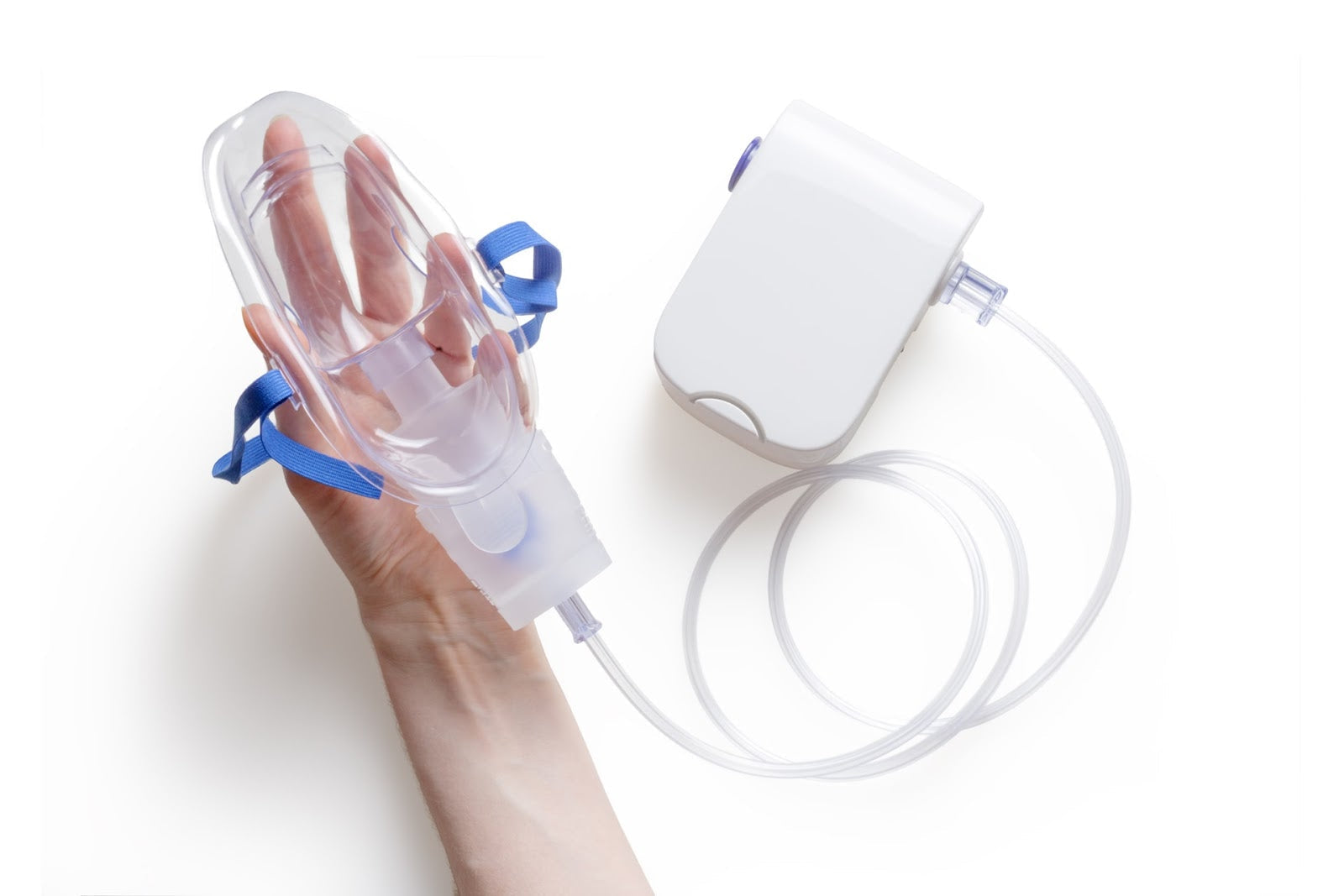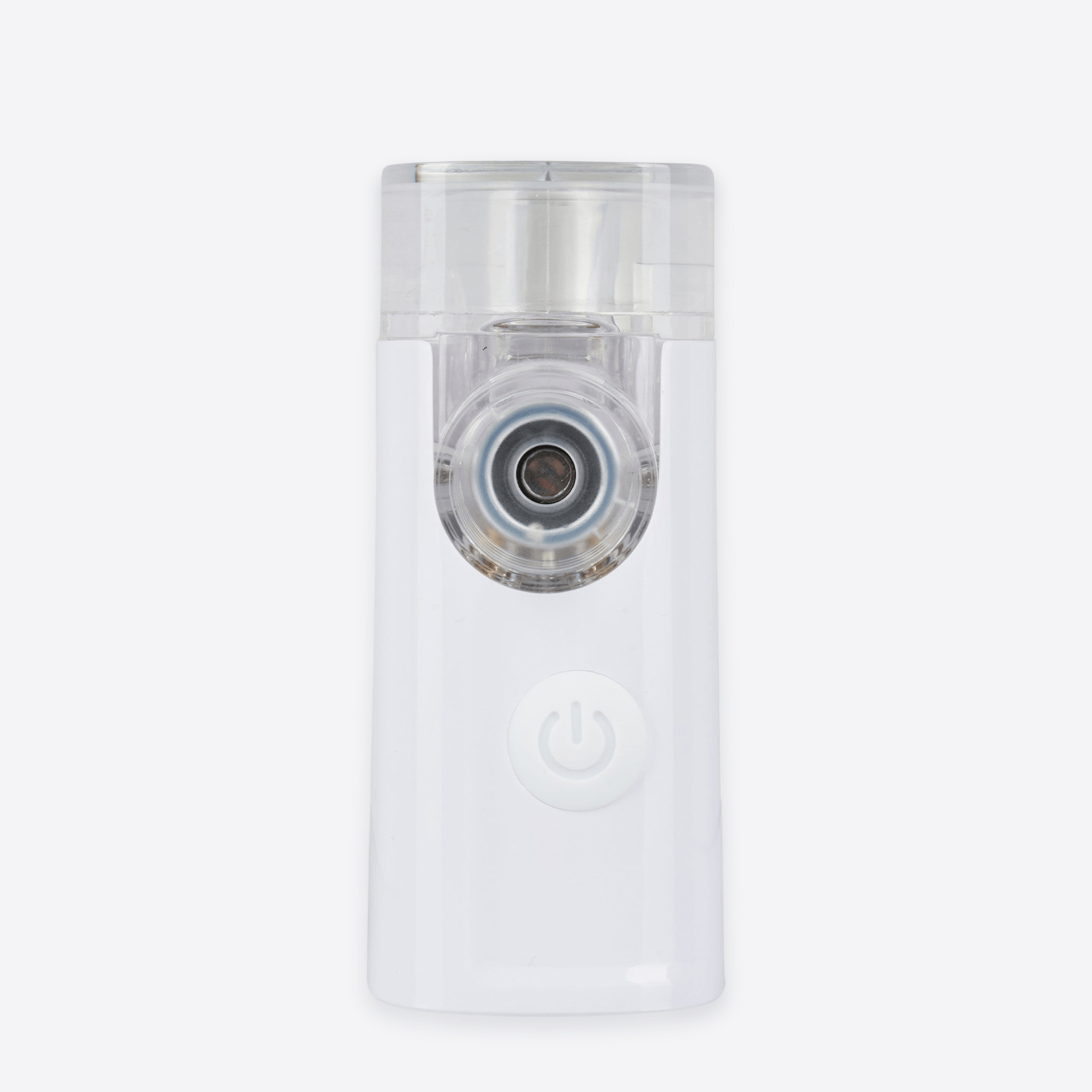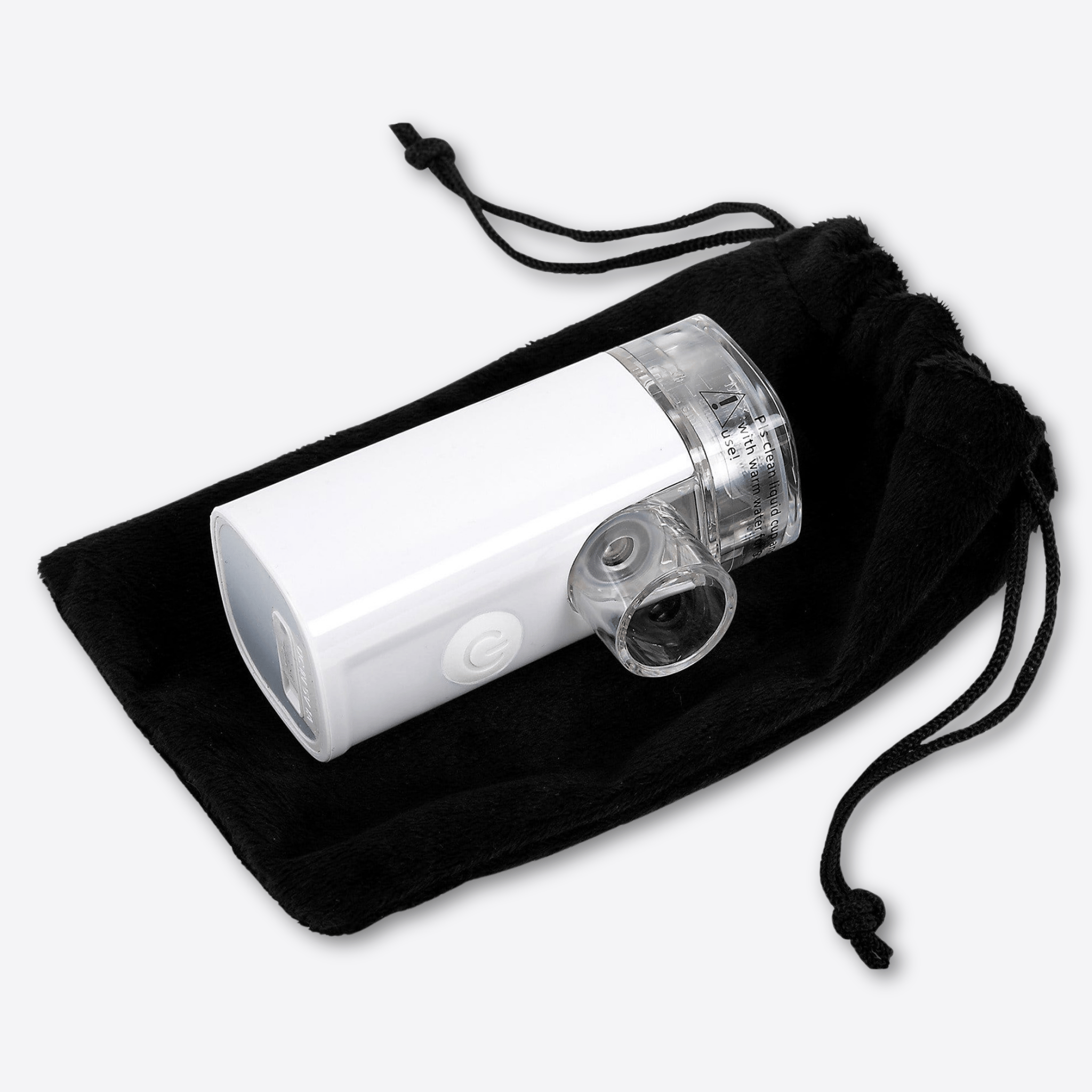A nebulizer can mean the difference between breathing and dying for people with respiratory conditions, such as asthma, bronchitis, or COPD. A portable nebulizer machine provides the same medicine as inhalers, except nebulizers are more straightforward and easier to inhale for children or those with severe asthma.
Portable nebulizers handle a variety of medications, but not all. Talk to your doctor about your medications and which nebulizer is right for you. We’ll go through portable nebulizers, what they do, the pros and cons, plus what conditions they treat. In the end, you’ll have a better idea of how portable nebulizers can help manage your symptoms.
What Does a Portable Nebulizer Machine Do?
Nebulizers create mist out of liquid medicine. When the medicine is mist, it is easier to inhale and reaches the lungs faster. The medicine goes to work quickly in the lungs to treat asthma and other respiratory symptoms.
There are a couple types of nebulizers available. The tabletop nebulizers plug into the wall and are larger than portable nebulizers. Portable nebulizers are smaller so they fit in your purse or bag. Furthermore, they don’t need to be plugged into the wall to work. Instead, they use rechargeable batteries or disposable batteries, depending on which type you use.
Mask or Mouthpiece?
A mouthpiece typically comes with the nebulizer. The mouthpiece attaches to tubing that attaches to the nebulizer. When you inhale, the medicine is atomized so it reaches your lungs faster.
Besides a mouthpiece, you can also use a mask. The mask covers your mouth and nose. It is easier for kids to use because they can still play, read books, or are easily distracted while allowing the atomized medicine to flow into their lungs.
What are the Pros of a Portable Nebulizer?
MIni portable nebulizers are perfect for those who are on the go. If you are busy, travel a lot, have school, work, and other activities, then a nebulizer treatment is always in your bag. The portable silent nebulizer is small and discreet.
Nebulizer treatments work faster than oral medication. For example, oral medication can take up to 30 minutes to start working. This is because the medication is broken down by the digestive system. Once it is broken down, it enters the bloodstreams and is transferred to your lungs.
On the other hand, portable nebulizers atomize medication so it goes directly into your lungs. As the medication enters your lungs, it reduces inflammation, opens your airways, and you get relief in a couple of minutes.
The cost of liquid medication for portable nebulizers is cheaper than it is in an inhaler. If your insurance doesn’t cover nebulizers, or only covers a portion, nebulizers are a better option. Common medications for nebulizers include:
- Budesonide
- Levalbuterol
- Ipratropium Bromide
- Albuterol
You may have seen tabletop nebulizers before, which can be loud. However, portable nebulizers are quiet. This is because they run on batteries and are smaller in size. If you need a treatment on the go, check to see if your nebulizer comes with an adapter. An adapter plugs into the wall in case your nebulizer runs out of batteries during an emergency.
What are the Downsides to a Portable Nebulizer?
While portable silent nebulizers have many pros, they do have a few downsides as well. Nebulizing medication in the portable size does take longer than a tabletop nebulizer. Since the nebulizer is smaller, it doesn’t have enough power in the motor to nebulize the medication like their larger counterparts. However, you will still receive the same dose of medication, just at a slower pace.
Insurance does not always pay for portable nebulizers. However, if you have an HSA or FSA account you can use that money to pay for the portable nebulizer. Otherwise, it is worth the convenience these mini portable nebulizers offer to save up for one. Once you have it in your bag, you never have to worry about a respiratory emergency while you’re on the go because it fits right in your bag.
Another downside to portable nebulizers is they typically don’t accommodate inhaled steroids. Steroids tend to clog the mesh that vibrates inside the nebulizer. The vibrating mesh is what makes the mist you inhale, so when it is clogged the nebulizer doesn’t work properly. However, if you are only on albuterol or one of the medications listed above, it should be fine.
What Conditions Does Nebulizers Help?
Portable nebulizers help a variety of conditions. These include:
- Cystic Fibrosis
- COPD
- Asthma
- Bronchitis
A nebulizer for cystic fibrosis (CF) helps increase the functions of the lungs. Many people with CF use steroids, bronchodilators, antibiotics, and hypertonic saline to manage their symptoms. Since CF patients are susceptible to infections, they have to disinfect and clean nebulizers often. Portable nebulizers are easy to clean and don’t involve a lot of hard-to-clean areas.
COPD is a chronic lung disease that causes wheezing, coughing, and difficulty breathing. People with COPD use nebulizer treatments to calm this inflammation and breath better. Daily nebulizer treatments can improve the quality of life for those who suffer from COPD by making breathing easier.
Asthma is another common disease treated with portable nebulizers. Common symptoms of asthma include chest tightness and trouble breathing. Inhaled albuterol relieves these symptoms by reducing inflammation. Sometimes maintenance medication is prescribed via nebulizer to keep symptoms at bay. However, when an emergency arises then portable nebulizers are life-saving treatments.
Bronchitis is another inflammatory disease in the lungs. It causes fever, chest tightness, trouble breathing, and mucus. Albuterol in the nebulizer opens up the bronchial tubes in the lungs to allow air to flow through easier. The better airflow allows you to breathe better and get relief from symptoms.
Which Nebulizer is Right for You?
Talk to your doctor about which nebulizer is right for you. Your doctor may recommend a combination of options. For example, a mini portable nebulizer is perfect when you are away from home. However, a tabletop nebulizer is better if you need daily steroids. Use a different combination of inhalers, portable nebulizers, and tabletop nebulizers to manage your symptoms.





